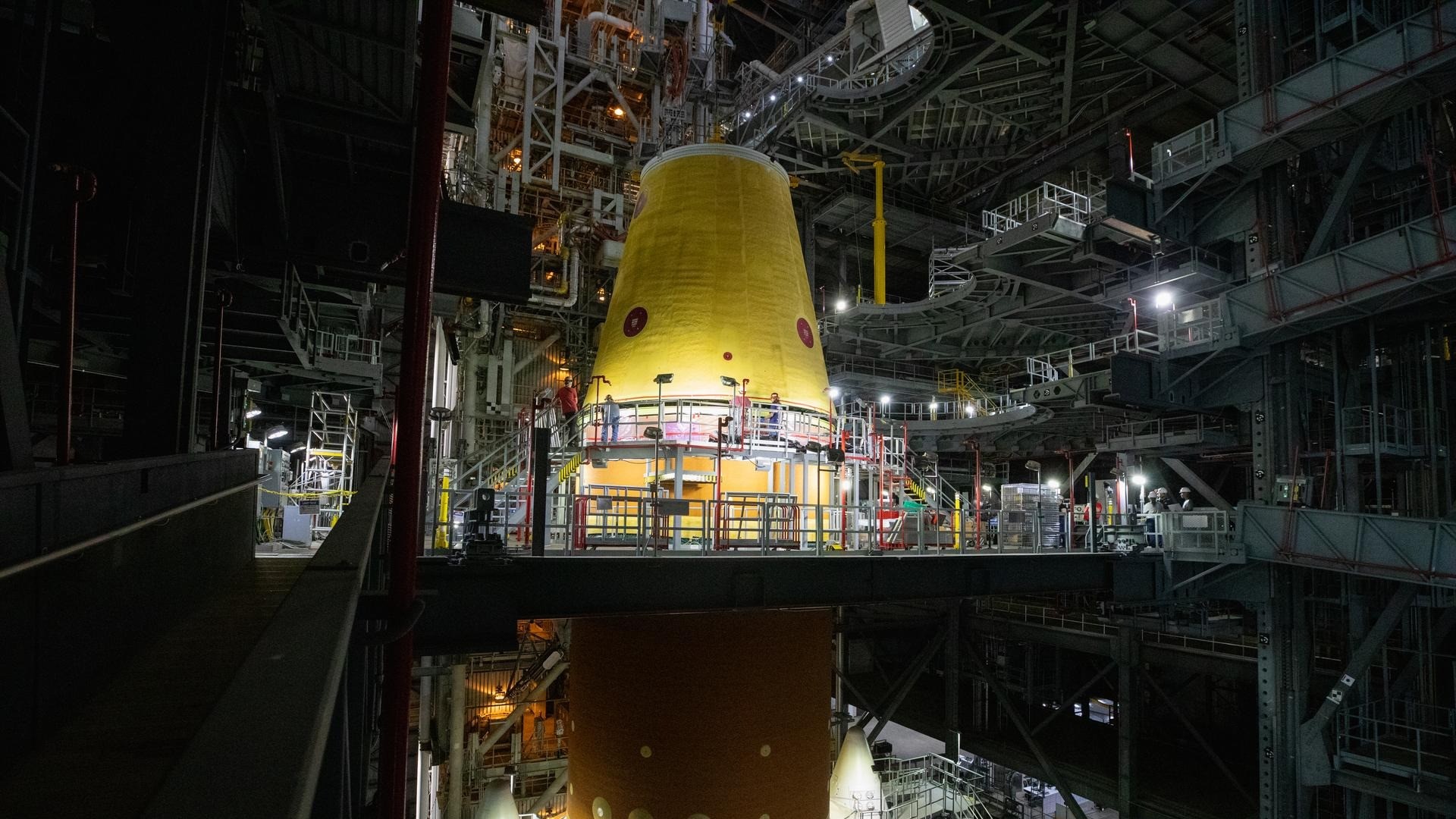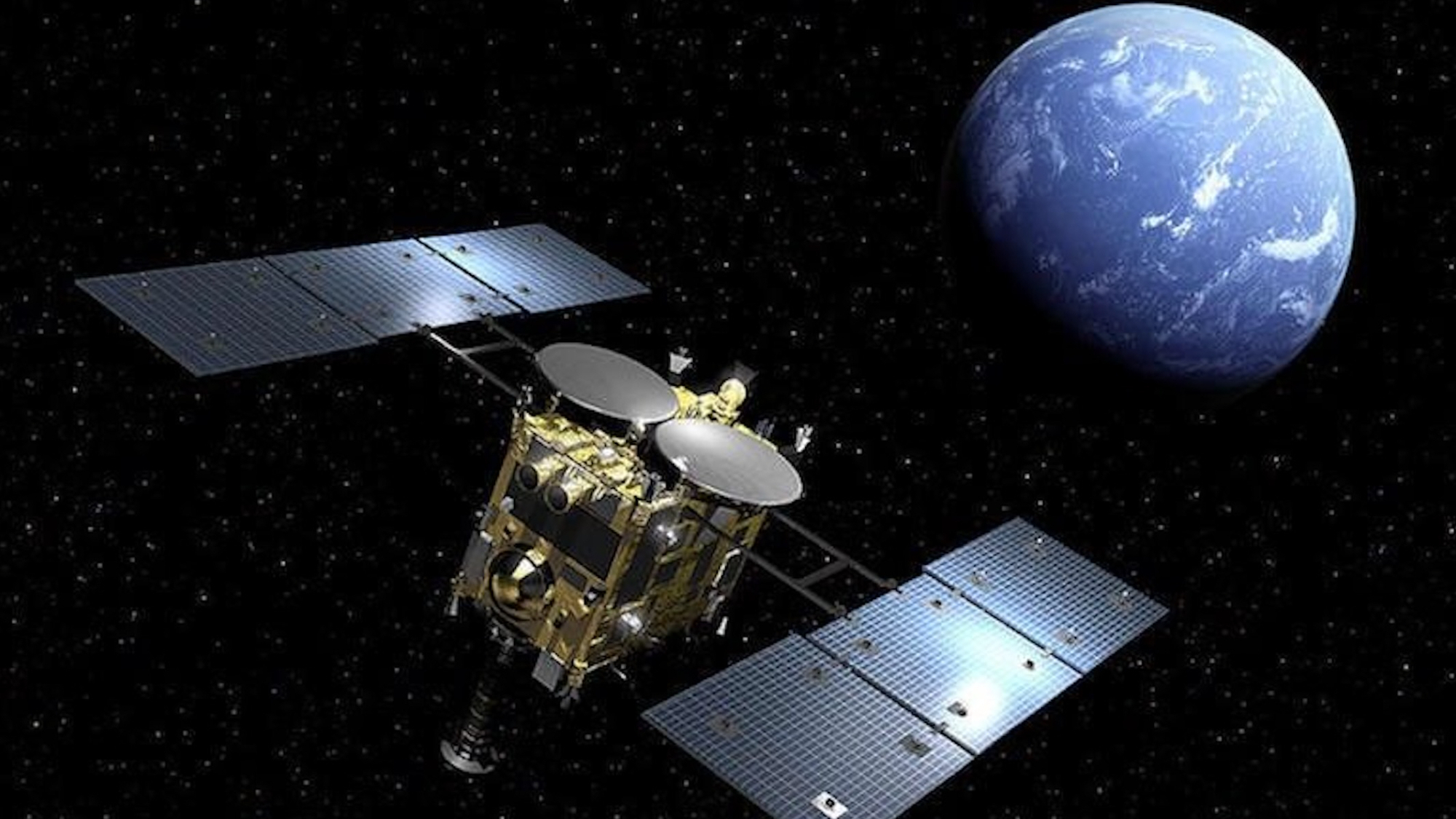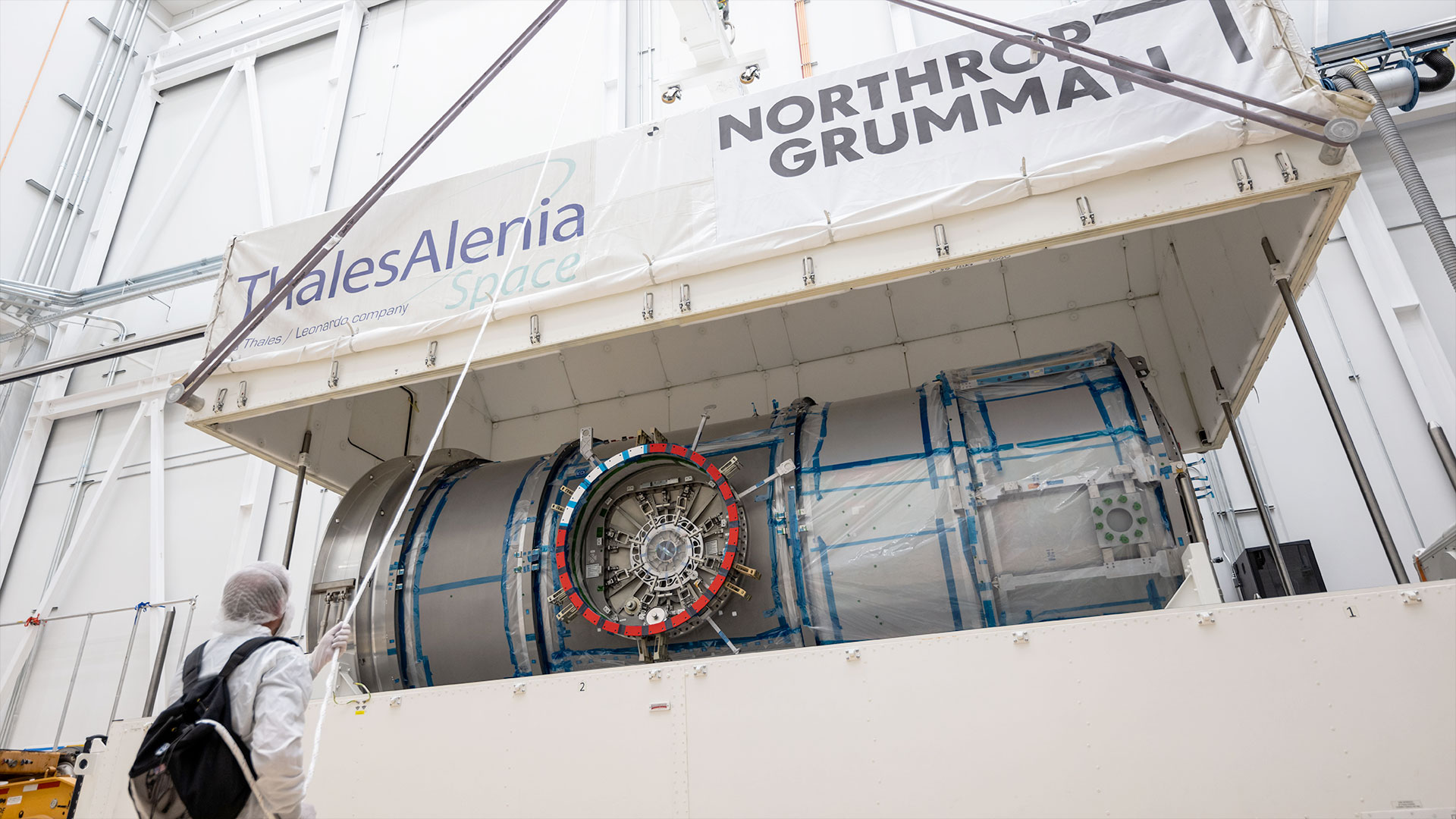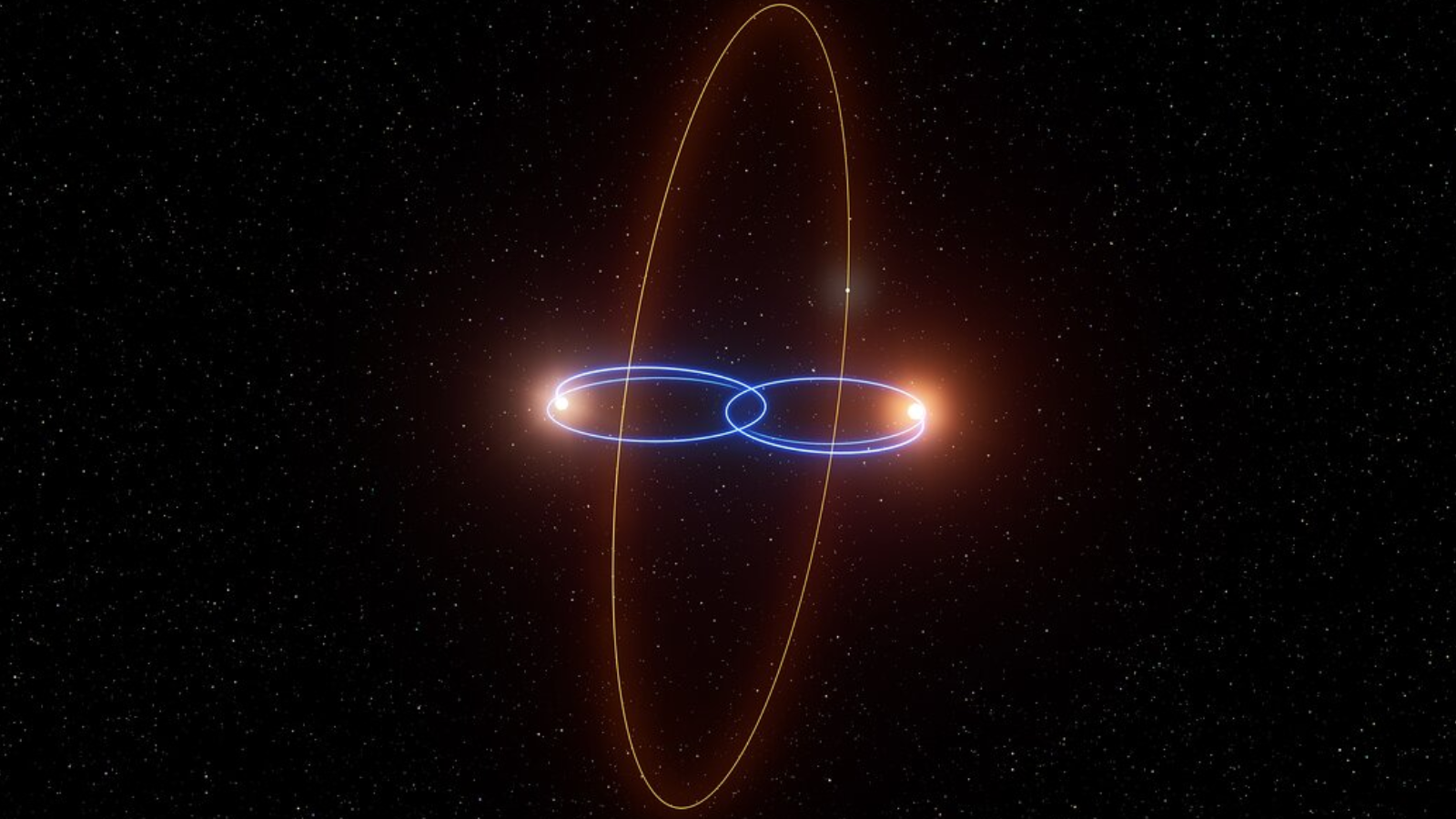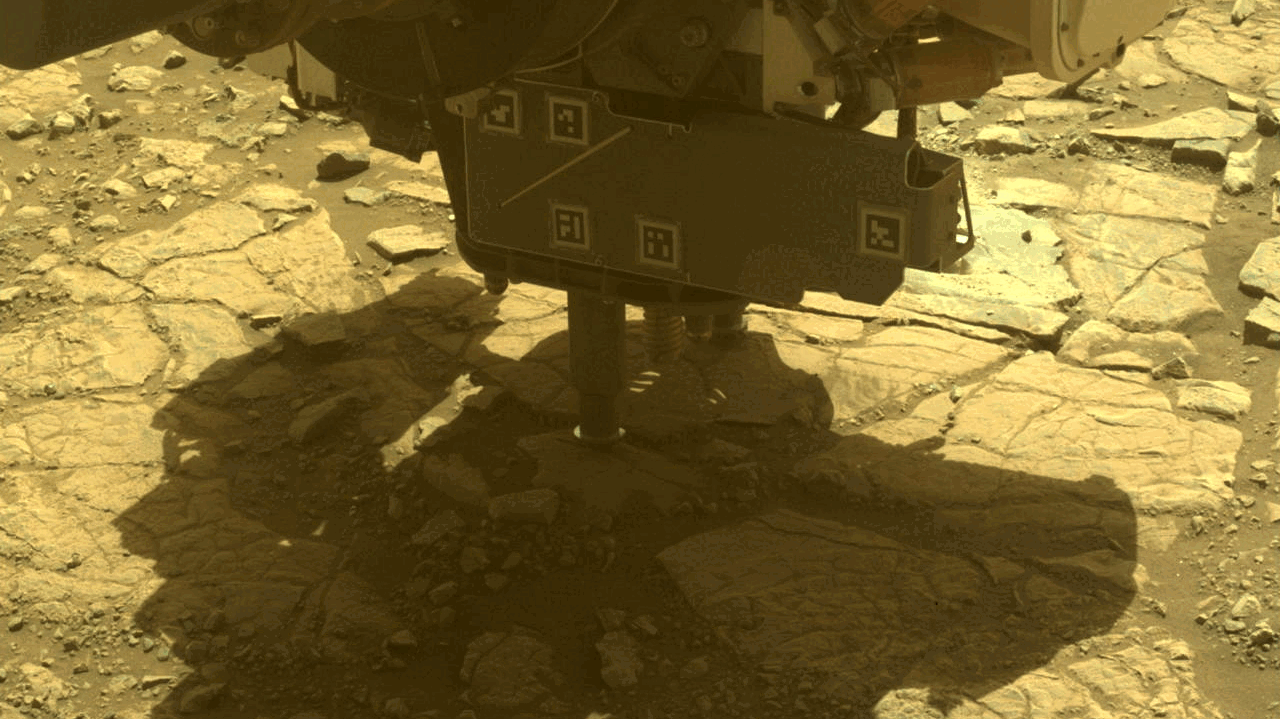Final Fiscal Year 2019 Budget Bill Secures $21.5 Billion for NASA
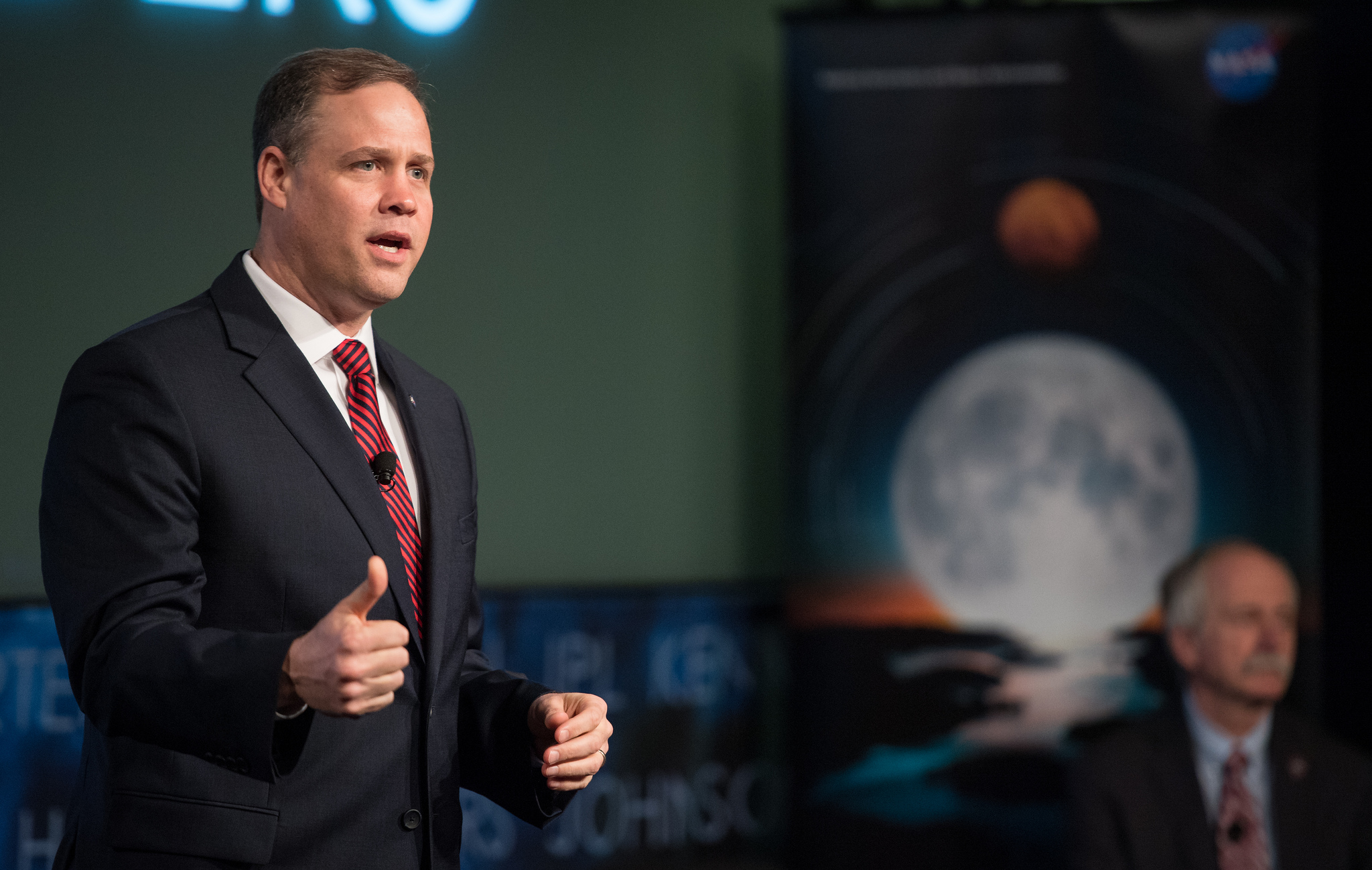
WASHINGTON — An appropriation bill signed into law Feb. 15 gives NASA $21.5 billion for fiscal year 2019, $1.6 billion above the administration's original request.
The bill, which combined several separate appropriations bills as well as a border security package, was approved by wide majorities in the House and Senate Feb. 14 in a bid to avoid another partial government shutdown. President Trump signed the bill Feb. 15, hours before the continuing resolution funding those parts of the government was set to expire.
The NASA provisions of the bill were identical to one the House passed in January, including both the overall funding level — an increase of $1.6 billion over the agency's original request — and report language. That report retained the strong language reflecting "profound disappointment" in the James Webb Space Telescope and its latest cost and schedule overruns, and warning that if there are further problems "JWST will have to find cost savings or cancel the mission."
The final bill rejects the proposal to reorganize the accounts used to fund the agency that NASA included in its budget request a year ago. That proposal sought to replace the Space Technology and Exploration accounts with two called Deep Space Exploration Systems and Exploration Research and Technology, shifting some technology programs as a result as it considered the future of the agency's overall Space Technology Mission Directorate. The final bill retains the existing Space Technology and Exploration accounts.
Space technology received $926.9 million in the bill, with the report citing "the need to maintain an independent research and technology portfolio to support both science and human exploration programs." Of that total, $180 million will go to Restore-L, a satellite servicing mission also previously threatened with cancellation, and $100 million to nuclear thermal propulsion research, including planning for a flight demonstration mission by 2024.
NASA's science programs were among the biggest beneficiaries of the budget increase, receiving a little more than $1 billion above the original request. Planetary science alone received more than $500 million above the request, including $280 million more for the Europa Clipper mission and $195 million for a follow-on lander mission to that icy moon of Jupiter not included in the original request. The launch of those missions would slip a year, though, to 2023 for Europa Clipper and 2025 for the lander.
The bill also retains funding for the Wide-Field Infrared Survey Telescope (WFIRST), which NASA sought to cancel in its 2019 budget request. The $321 million provided is intended to keep the mission on track for a launch in the mid-2020s, with a cost cap of $3.2 billion.
Get the Space.com Newsletter
Breaking space news, the latest updates on rocket launches, skywatching events and more!
The budget provides $110 million for NASA's education program, since renamed Science, Technology, Engineering and Mathematics (STEM) Engagement. The administration had, for the second year in a row, requested no money for the program in its request, a proposal that faced bipartisan criticism.
The Space Launch System received $2.15 billion and Orion spacecraft $1.35 billion, both slightly above the original request. The report called on spending at least $150 million on the Exploration Upper Stage (EUS) being developed for the Block 1B version of SLS amid concerns work on that upper stage is slowing down. "There is strong support for the development of the EUS in order to ensure that NASA has sufficient heavy lift capabilities to support a regular cadence of heavy lift science and human exploration missions," the report stated, calling for it, and a second mobile launch platform, to be ready by 2024.
NASA's lunar plans also fared well, with the lunar Gateway, called the Lunar Orbital Platform in the report, receiving $450 million while the Advanced Cislunar and Surface Capabilities program won $116.5 million. A low Earth orbit commercialization initiative, included in the budget as part of a proposal to end direct funding of International Space Station operations in 2025, received only $40 million of the requested $150 million, which will go to "port implementation analysis and other activities to enable future commercial activities at the International Space Station."
The report also rejects a proposal for NASA to work with others in the search for "technosignatures," such as radio transmissions or other evidence of extraterrestrial civilizations. The House version of the 2019 spending bill included $10 million in astrophysics for NASA "to partner with the private sector and philanthropic organizations, to the maximum extent practicable," on such searches. The final bill "does not adopt House language regarding certain work with private sector or philanthropic organizations."
The overall bill did not include provisions guaranteeing back pay to contractors who were affected by the five-week partial government shutdown, including those working for NASA. While civil servants received back pay, contractors received it only on a case-by-case basis, with many not getting paid.
"This shutdown created hardship for more than one million hardworking, dedicated federal contract workers through no fault of their own," said Robert Martinez Jr., president of Machinists Union International, which represented some of the affected employees at NASA. In a Feb. 14 statement, he called on Congress to pass a standalone bill restoring that pay.
Another provision of the bill protected property at SpaceX's launch site under development near Brownsville, Texas, just north of the Mexican border. Language in the bill prevents funding from being used to build border fencing in several areas, including within or east of the Vista del Mar Ranch tract of the Lower Rio Grande Valley National Wildlife Refuge, where the SpaceX facility is being built. There has been concerns that any border wall built in the area could pass through SpaceX property there.
"I worked hard to include this language because protecting these ecologically-sensitive areas and ensuring local communities have a say in determining the solutions that work for them is critical," said Rep. Henry Cuellar (D-Texas) in a statement. He was part of the conference committee that drafted the final bill and included those provisions. However, the language might not apply to funding obtained from other sources, such as that transferred from other agencies as part of a national emergency declaration announced by President Trump Feb. 15.
Attention now turns to the fiscal year 2020 budget proposal, whose release in early February was delayed by the partial government shutdown. Capitol Hill sources now expect the budget proposal to be released in early to mid March.
This story was provided by SpaceNews, dedicated to covering all aspects of the space industry.
Join our Space Forums to keep talking space on the latest missions, night sky and more! And if you have a news tip, correction or comment, let us know at: community@space.com.

Jeff Foust is a Senior Staff Writer at SpaceNews, a space industry news magazine and website, where he writes about space policy, commercial spaceflight and other aerospace industry topics. Jeff has a Ph.D. in planetary sciences from the Massachusetts Institute of Technology and earned a bachelor's degree in geophysics and planetary science from the California Institute of Technology. You can see Jeff's latest projects by following him on Twitter.




